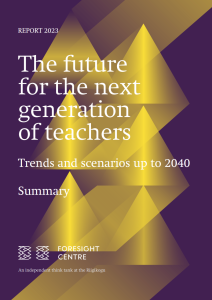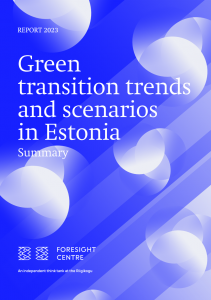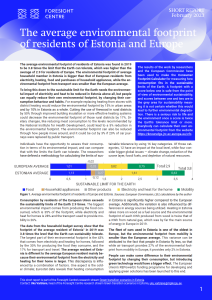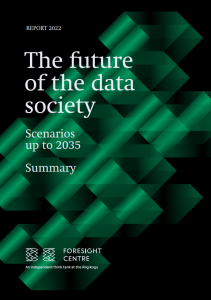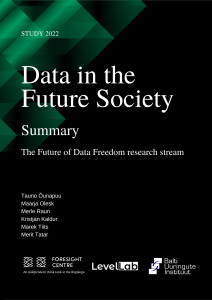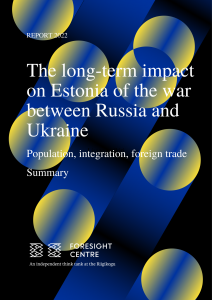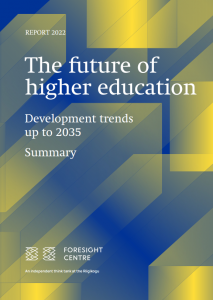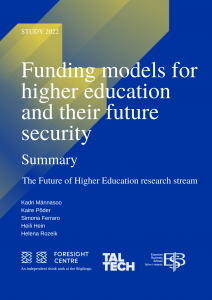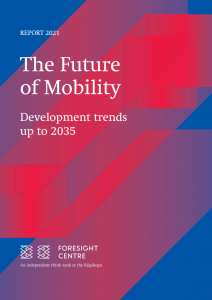Current research highlights key uncertainties and critical factors that will influence the supply of teachers in Estonia up to the year 2040. In a future perspective, it is most important to recognize those trends that are currently underestimated but have the potential to significantly disrupt the entire education system as they grow.
Reports
The deterioration of the environment and climate warming pose significant risks to the well-being of people in Estonia. In alignment with the European Union’s green transition, Estonia has committed to achieving climate neutrality by 2050. To achieve these goals, mere improvements in existing energy systems may not suffice and fundamental changes are required in how energy is supplied to the population, and in how people move around, eat and live.
The average environmental footprint of residents of Estonia was found in 2019 to be 3.8 times the limit that the Earth can tolerate, which was higher than the average of 2.9 for residents of Europe. The environmental footprint of average household member in Estonia is bigger than that of European residents from electricity, heating, food and purchases of household appliances, while the environmental footprint from transport was smaller than the European average.
The spread of digital technology into every area of life has caused the datafication of the economy and society, as the actions of people, companies, machines and even nature leave a lasting data footprint.
The foresight study “Data in the Future Society” aims to contribute to increasing the use of data in public governance and helping shape forward-looking and informed data policies. This project was commissioned by the Government Office and the Foresight Centre and carried out by LevelLab in cooperation with the Institute of Baltic Studies.
On the anniversary of the Republic of Estonia, 24 February 2022, Russia invaded Ukraine. More than 5 million people have fled Ukraine since the war started, and by the middle of June some 43,000 of them had reached Estonia. It is inevitable that even if the war ends quickly, many of the people who have arrived in Estonia from Ukraine will remain here for a long time, and some of them will never return to their homeland. It is not currently possible to know though when the war will end, how many refugees would have reached Estonia by then, and whether they will be able to or will want to return to their homeland.
Higher education has a value for individuals, the economy, and the whole of society. People are motivated to invest in higher education because they expect greater welfare in the future through higher income and the better quality of life that that allows, and also intellectual enrichment and a more varied life.
The current report focuses on the future of higher education in Estonia. The importance of human capital in the knowledge economy has promoted the debates about the role, size, and financing of higher education to the core of academic and political debates.
Mobility and the options for mobility are tightly linked with how we live our lives. We move to go to work, to study or to make use of our leisure time. The future of mobility can be seen in the broadest sense of how and where people live their lives, or more narrowly as the day-to-day mobility choices made within the existing system.

 An independent think tank at the Riigikogu
An independent think tank at the Riigikogu 